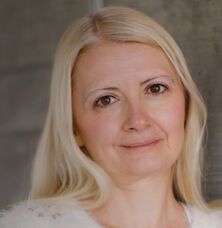Data has been called the gold of the 21st Century and advanced data analytics techniques have the potential to revolutionise almost every aspect of human activity. For countries to benefit from the data revolution and transform their economies into self-reliant knowledge economies, they require a skilled workforce. The focus of the Chair’s work is on how the data revolution and advanced analytics techniques such as artificial intelligence (AI) can be harnessed as a source for good to benefit people across the world.
The work of this Chair
The work of our UNESCO Chair at the University of Essex has a global outlook, concerned particularly with the ‘knowledge and digital divide’. Alongside improved infrastructure, developing countries need skills, data-literacy and a research base to transform their economies into self-reliant knowledge economies.
Professor Fasli and her team work with national and international collaborators on joint research and education activities to develop research capacity, knowledge and skills. In her role as Chair, she leads the ESRC Business and Local Government Data Research Centre (BLG DRC), an interdisciplinary research centre concentrating on the needs of the public sector and businesses. By educating people across the globe in how to manage and ‘read’ datasets, Professor Fasli is confident that countries will benefit in the long term from increased economic growth, sustainability and equality on the international stage.
The Chair has been supporting the development and delivery of education programmes at the University of Essex, including: MSc in Big Data and Text Analytics, MSc in Data Science, BSc in Analytics and Data Science. Recently, this has expanded to the development of conversion programmes that teach skills in data science and artificial intelligence to graduates whose backgrounds are outside computer science or statistics. Maria has also delivered training, interactive workshops and career building sessions with collaborates all over the world, including Brazil, Malaysia, Rwanda, Indonesia and Morocco.
About the Chair Lead

Maria Fasli is a Professor of Computer Science (Artificial Intelligence) and the Director of the Institute for Analytics and Data Science (IADS). She was head of the School of Computer Science and Electronic Engineering, from 2009 to 2014 and in 2014, she was appointed as the Director of IADS. Her research interests include artificial intelligence techniques for analyzing and modeling complex systems and structured and unstructured data in various domains.






